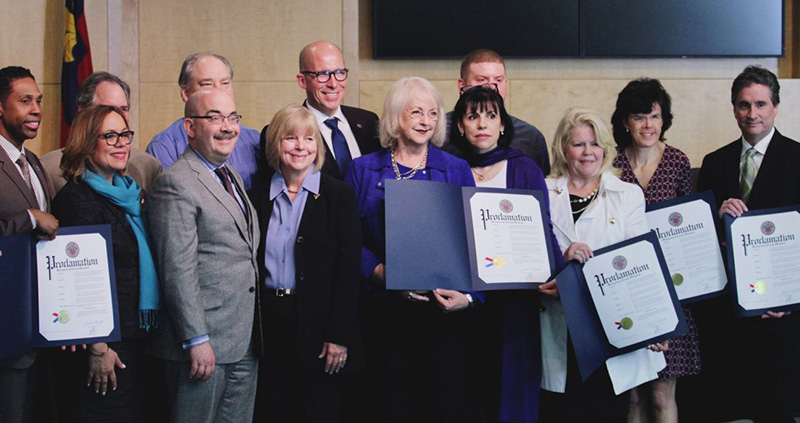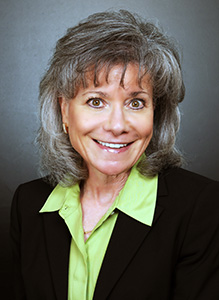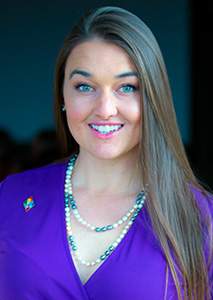For most people with autism, housing is not affordable. It is a myth that Medicaid pays for housing (unless the individual lives in an institutional setting). If a person with autism can access Medicaid Long-term Support Services (LTSS) that pays for staff, transportation or programs necessary to be part of their community but cannot afford housing, they will potentially be displaced into the “next empty bed” of a group home or host home potentially multiple counties away.

Local leaders stand together as April 21 is declared “Autism After 21 Day” in Montgomery County, Maryland.
While some may prefer a group home or host home, without planning these crisis placements leave little room for choice of preferred service provider. This displacement can be traumatic and dismantles the significant work and energy invested in finding the right support and ecosystem like friends, faith community, jobs, day programming, healthcare providers and more.
In the U.S., there are no federal programs that provide housing assistance specifically to people with autism. Pooja Paode, a Daniel Jordan Fiddle Foundation Adult Autism Public Policy Fellow, has brought to light the following important findings in her recently published policy review, Housing for Adults with Autism and/or Intellectual/Developmental Disabilities: Shortcomings of Federal Housing Programs1:
- Housing assistance is set aside for people with disabilities in general. This means “disability units” are most often interpreted as being wheelchair accessible, not necessarily neuro-inclusive or incorporating amenities that make housing more accessible to people with autism.
- Currently, fewer than 120,000 people with disabilities benefit from disability-specific federal housing assistance to live in their own home (Non-Elderly Disabled Housing Choice Vouchers or Section 811 units). This is critically inadequate considering the CDC estimates nearly 5.5 million adults are on the autism spectrum.2
- Even if someone can access housing assistance that is not disability-specific, options are mainly rental units in urban areas. While more easily accessible to public transportation, healthcare, jobs and more, some autistic individuals may feel overwhelmed with the people, sights and sounds of urban life.
- People with autism living with senior caregivers are not counted in statistics as being at risk of homelessness even though they will likely lose their home when their caregiver passes away or can no longer support them.
- The majority of Fair Housing Act complaints sent to the Department of Justice are for discrimination on the basis of disability.
This may come as a surprise, but local community leaders and the housing industry in general are not aware that people with autism need housing. The reality is the public face of autism is often either a child or an autistic savant like the Good Doctor or Rainman – none of whom are interpreted as needing deeply affordable housing. Unless a housing developer or local official has a child with autism or other intellectual/developmental disability (I/DD), most people assume that they live with family or the government takes care of everything. Unfortunately, these assumptions mean that the future of adults with autism or other neurodiversities is not being considered in general community development. For these reasons, it is imperative that the voices of autistic adults and their families are heard and their stories shared.
You do not have to be a policy wonk or professional speaker to be a great advocate! As long as you are willing to schedule a meeting and share your story, you can make a big difference in your community. Here are three ways you can become a powerful advocate for more neuro-inclusive housing in your own community:
1. Ask your local elected or appointed officials to declare April 21 “Autism After 21 Day.”
Local officials are charged with addressing the needs of their immediate community and coordinating government efforts to help meet those needs. They also have to be reelected and should be aware of the voting power of the autism community.
- Schedule a meeting to share your concerns for the future of adults with autism or other I/DD in your community and the risk of displacement.
- Ask that they declare April 21 “Autism After 21 Day” to start raising acceptance of and opportunities for adults with autism. This Autism After 21 Day Toolkit with sample language can get you started.3
2. Make sure your local planning department and “comprehensive plan” include people with autism.
In every community, there is a planning department that provides design guidance, reviews zoning and housing development applications, and shapes public policy related to growth, preservation and development. Ultimately, the planning department provides recommendations to an elected or appointed planning commission that either approves, denies or requests changes in community applications (including housing for people with autism or other I/DD). This team also leads a process every 10 years or so to create a comprehensive plan that determines community goals and aspirations. Such a plan ensures growth in the community is sustainable for a balance of future housing, schools, healthcare and first responder facilities, green spaces, retail and other infrastructure like roads and sidewalks. It is important that these two important players in community development understand the housing needs of adults on the autism spectrum so they can plan and ensure all public spaces, buildings and events are cognitively and physically accessible.
- Request a meeting with your local planning department to share housing needs and how spaces in your community can be more accessible; ask that they intentionally include people with autism and other I/DD in the next comprehensive planning process.
- Make sure to share with them the groundbreaking report, A Place in the World: Fueling Housing and Community Options for Adults with Autism and Other Neurodiversities, an indispensable guide for how future housing and community development can be more neuro-inclusive.4
3. Ask your local housing authority to prioritize housing assistance.
Housing assistance direct to individuals is managed by Public Housing Authorities (PHA) that oversee the local waitlists for affordable units or housing vouchers. They can create “preferences” in policy to prioritize critical needs in their community.56 Adults with autism living with aging family caregivers are part of an invisible housing crisis of which they are likely unaware. Tell them people with autism are extremely low income and will be homeless or displaced when their family caregiver can no longer house or care for them. Although they cannot create a preference for a specific disability such as autism, they can create preferences that would prioritize this population to prevent displacement or homelessness.7
- Find your local PHA here.8
- Plan a meeting and ask how the following preferences can be added to the PHA administrative plan: person with disability, residency preference, single persons with disability who are displaced or homeless, or for specific units designed for people with I/DD receiving services.
Including the interests of adults with autism as an integral part of the community means working together to ensure this often invisible and silent population is finally seen and heard. Your advocacy matters!
Helpful Links
- You Tube video about local community action (Autism After 21 Day)
- Autism After 21 Day Toolkit

Denise D. Resnik

Desiree Kameka Galloway
Desiree Kameka Galloway is the director of the Autism Housing Network, a project of the Madison House Autism Foundation, and a sought-after disability housing expert. Denise D. Resnik is the parent of an adult with autism; founder, CEO and president of First Place AZ; and co-founder of the Southwest Autism Research & Resource Center (SARRC).
Footnotes
- www.firstplaceaz.org/wp-content/uploads/APITW-Report-01.05.21.pdf#page=72
- www.cdc.gov/ncbddd/autism/features/adults-living-with-autism-spectrum-disorder.html
- www.autismhousingnetwork.org/tool-kit-to-create-autism-after-21-day-in-your-community/
- www.autismhousingnetwork.org/apitw-2/
- www.law.cornell.edu/cfr/text/24/982.207
- www.law.cornell.edu/cfr/text/24/960.206
- www.usich.gov/resources/uploads/asset_library/PHA_WaitList.pdf
- www.hud.gov/program_offices/public_indian_housing/pha/contacts





There is a great need for supportive housing for older adults on the spectrum, 30/40/50 yr old. They can function well with just a little ” in house supports”, and are able to manage without being in a group home. Does anything like this exist in NY, namely Nassau county or Suffolk county?